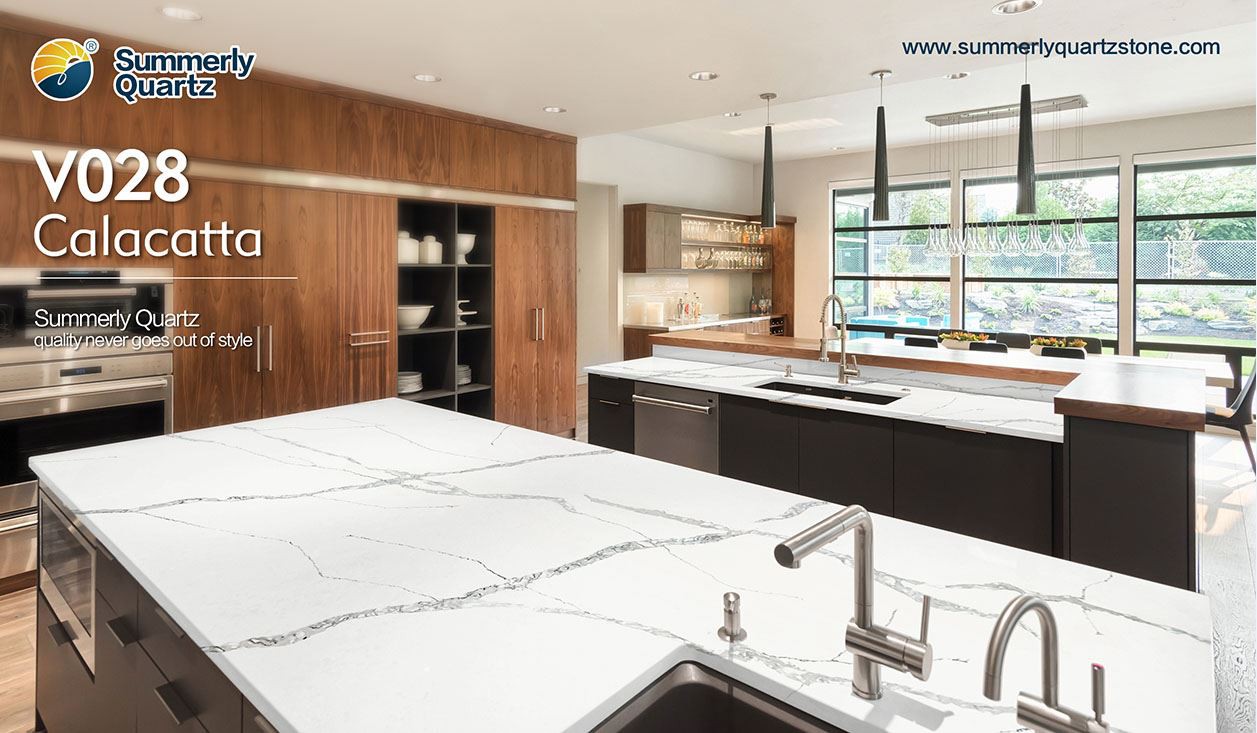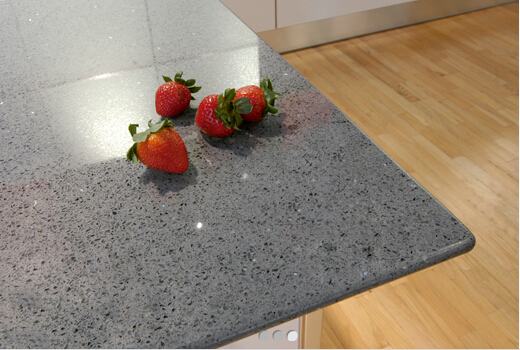
Choosing the right thickness for your quartz countertop is a crucial decision that can significantly impact both the functionality and aesthetics of your kitchen or bathroom. With various thickness options available, understanding the implications of each choice is essential for making an informed decision.
Quartz countertops are typically available in two standard thicknesses: 2 cm and 3 cm. While some quartz stone manufacturers may offer custom thicknesses, these two options are the most common and widely used in residential and commercial applications.

When it comes to how to choose the right quartz countertop thickness, you need to consider the following aspects:
The thickness of a countertop directly correlates with its durability. Thicker countertops tend to be more robust and can withstand greater wear and tear, making them ideal for high-traffic areas such as kitchens.
3 cm Countertops: These are generally recommended for kitchen applications due to their ability to support heavier loads without the need for additional support structures. They are less prone to chipping and cracking, which is particularly important in busy environments where heavy pots, pans, and appliances are frequently placed on the surface.
2 cm Countertops: While still durable, thinner countertops may require additional support, especially for overhangs exceeding 8 inches. This support often comes in the form of plywood or brackets, which can complicate installation and increase costs.
The visual impact of countertop thickness should not be underestimated. Thicker countertops often convey a sense of luxury and substance, which can enhance the overall design of your space.
Thicker Slabs: A 3 cm countertop can accommodate more elaborate edge profiles, such as bullnose or ogee, which can add to the elegance of the design. Additionally, thicker countertops can create a more substantial look, making them a popular choice for modern kitchens and high-end renovations.
Thinner Slabs: A 2 cm countertop offers a sleeker, more contemporary appearance. This option is often preferred in minimalist designs where a less bulky look is desired. However, the thinner profile may limit the types of edge treatments available.
When selecting a countertop thickness, it's essential to consider the weight of the material and the structural integrity of the cabinets and flooring beneath it.
Weight: A 3 cm quartz countertop is significantly heavier than its 2 cm counterpart. This added weight can pose challenges for older homes or cabinets not designed to support such loads. Always ensure that your cabinetry is robust enough to handle the weight of thicker slabs, as failure to do so can lead to sagging or damage over time.
Support Requirements: Thinner countertops may require additional support, particularly for larger spans or overhangs. This necessity can increase installation complexity and costs, as well as the time needed for proper installation.
Cost is often a decisive factor in selecting countertop thickness. Generally, thicker countertops are more expensive due to the increased material costs and the complexities involved in their installation.
3 cm Countertops: While more expensive upfront, these countertops often provide better long-term value due to their durability and lower maintenance needs. They typically require less support, which can save on installation costs.
2 cm Countertops: These are generally more budget-friendly and may be suitable for smaller projects or areas with less traffic, such as bathroom vanities or decorative tabletops. However, the potential need for additional support can offset some of these savings.
The intended use of the countertop and its location within your home are critical factors in determining the appropriate thickness.
High-Traffic Areas: For kitchens and other areas where heavy use is expected, a 3 cm countertop is typically the best choice. Its strength and durability make it ideal for withstanding the rigors of daily life.
Low-Traffic Areas: In contrast, 2 cm countertops may be suitable for spaces with less activity, such as guest bathrooms or decorative surfaces that are not frequently used.
Selecting the right thickness for your quartz countertop involves careful consideration of various factors, including durability, aesthetics, weight, budget, and usage. While 3 cm countertops offer superior strength and design flexibility, 2 cm countertops can provide a sleek, modern look at a lower cost. Ultimately, the best choice will depend on your specific needs, preferences, and the characteristics of your space.
Before making a final decision, it is advisable to consult with a quartz stone manufacturer or designer who can provide insights tailored to your project. With the right information and guidance, you can choose a quartz countertop thickness that enhances both the beauty and functionality of your home.